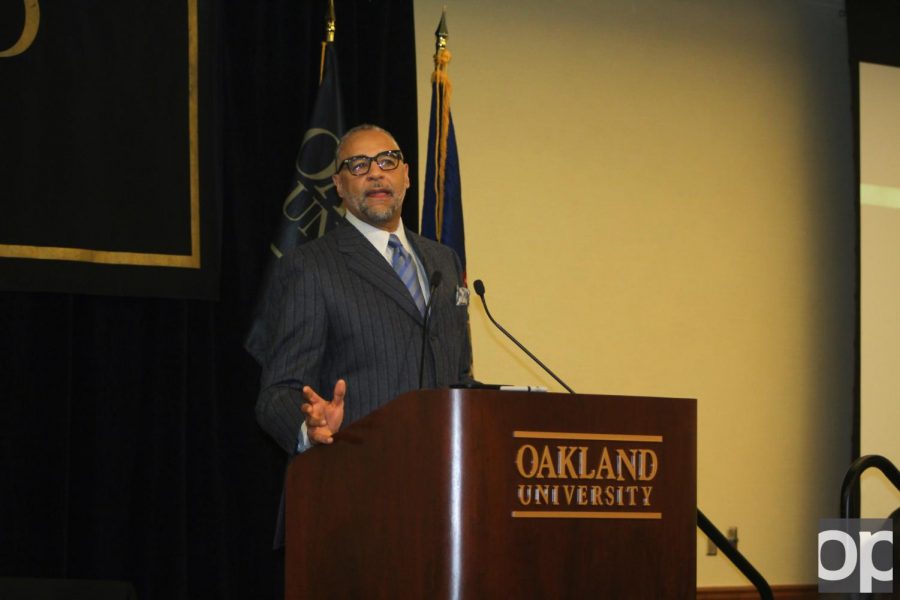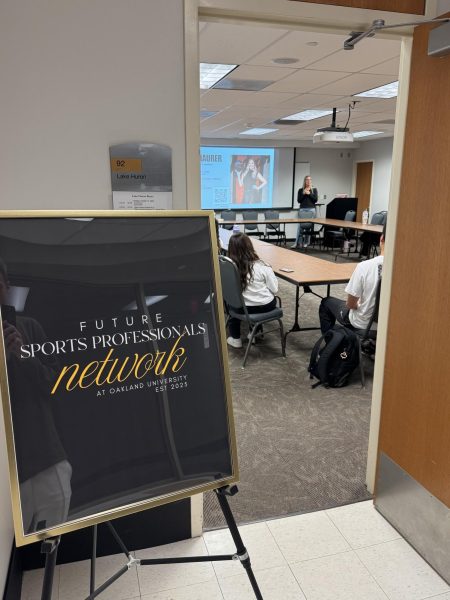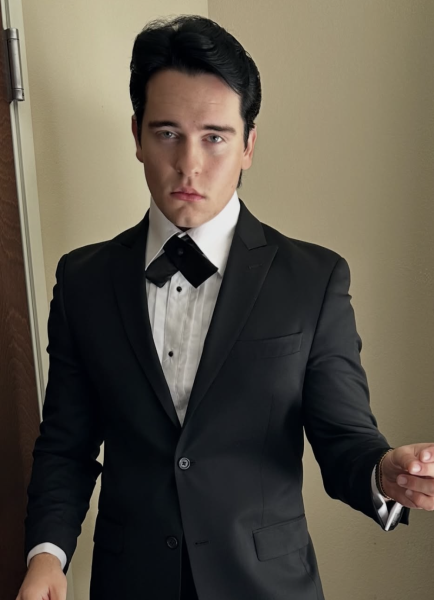Keeper of the Dream ceremony talks social issues, politics and Dr. King’s vision
Ed Gordon Speaks about MLK’s vision at the Keeper of the Dream award ceremony.
I have a dream.
These four words are always associated with prominent civil rights leader and activist Dr. Martin Luther King Jr. But these words are also what inspired Oakland University’s Center for Multicultural Initiatives to establish the Keeper of the Dream Scholarship in 1993. Every year, a few OU students that have, according to CMI’s website, “contributed to interracial understanding and good will” in the community receive recognition for their accomplishments at the annual Keeper of the Dream Awards Ceremony.
The 26th annual Keeper of the Dream keynote speaker was Emmy Award-winning broadcaster and Detroit native Ed Gordon. Gordon graduated from Western Michigan University where he studied communication and political science. Throughout his career Gordon has conducted one-on-one interviews with former president Barack Obama, co-anchored the 2012 presidential inauguration on BET and can be heard on “The Steve Harvey Morning Show” in which he talks about current national headlines.
At the 2018 ceremony, Gordon touched on a few different topics about politics, social issues and King’s vision of equality in the “conversation” he had with the audience.
According to Gordon in today’s society there is a disservice to King and his message because corporations have minimized MLK Day to just another holiday because it is “safe.”
“I’ll talk about some things that won’t always necessarily be comfortable or things that are deemed safe,” he said. “But if we don’t continue to do that we do a disservice to Dr. King because…it is important that we know that King was far more than just a dreamer. If King were just a dreamer none of what [King and his followers] talked about would have come to bare.”
Gordon also went on to compare how the leaders of this generation are “Facebook leaders” because people are “creatures of our time.” Black leadership in particular is more concerned with material matters rather than action, which is unlike how the leaders of King’s time were in that they created plans.
“I see a lot of talking, I see a lot of arguing, but I don’t see plans,” Gordon said. “I’ve gotten to know many [civil rights] soldiers over the years. Dr. [Joesph] Lowery and Dr. [Ralph] Abernathy before his death, and others and they often talked about the stages of planning of what they were doing.”
As far as today’s political climate is concerned, according to Gordon, President Donald Trump does not exhibit King’s “content of character.”
“Whether you agree politically or not with this president, you’re hard pressed to say that the content of his character is that what we would aspire to be, or most importantly, teach our children to follow,” Gordon said.
There are many people who would believe that King’s vision has become a reality in America, but Gordon does not.
“Dr. King talked about the ideal of what America wanted to be and should be and the promise of, but he never talked about it as a reality and I think that’s still true today,” he said. “The ideals of America are right and just but we’re still reaching to make that a reality for all people.”
Before Gordon ended his conversation, he had a final note for all of the students in the audience.
“Whatever you do whether you’re atypically black, authentically black…whatever you’re gender, sexual orientation, whatever it is live it for yourself,” he said. “There’s an old African proverb that says, ‘It’s not what you call me, it’s what I answer to.’ As you go out in the world just remember that and be proud of what you answer to.”









